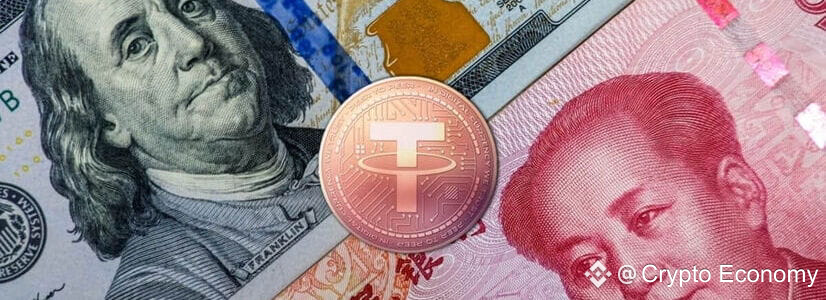TL;DR
China instructed brokers and local entities to halt the promotion of stablecoins and cancel events or publications on the subject.
Despite the cryptocurrency ban, over-the-counter trading of digital assets in China reached $75 billion in 2024.
Hong Kong has already granted licenses to 11 exchanges and 44 crypto companies, while the U.S. approved its first federal law regulating stablecoins.
China ordered stock brokers and other local bodies to stop promoting stablecoins through research and seminars.
The goal is to contain growing hype around these assets and prevent potential financial instability. The move also responds to regulatory concerns about the possible use of stablecoins as tools for fraud within the country.

Several brokerages and research centers received instructions to cancel events and suspend the dissemination of material related to stablecoins. Although China maintains a general ban on cryptocurrency transactions, over-the-counter trading of digital assets remains active and recorded a volume of approximately $75 billion in the first nine months of 2024, according to Chainalysis data.
In recent months, local authorities in regions such as Beijing, Suzhou, and Zhejiang issued warnings about illicit activities linked to cryptocurrencies and stablecoins, stating these operations pose a potential risk.

Stablecoins, generally backed by liquid assets and issued by private companies, are gaining ground as a method for international payments thanks to their speed and lower costs. Most are pegged to the U.S. dollar, and the global supply is projected to reach up to $3.7 trillion by 2030.
Is China Developing a Yuan-Linked Cryptocurrency?
Although China enforces many cryptocurrency prohibitions, some official comments suggest interest in developing digital currencies tied to the yuan. This aims to reduce global dependence on the dollar and promote international use of its currency. In June, the governor of the People’s Bank of China, Pan Gongsheng, highlighted that stablecoins could transform international finance, especially considering the fragility of traditional payment systems and geopolitical tensions.
Meanwhile, Hong Kong is advancing digital asset regulation and has established a licensing regime covering 11 exchanges and 44 companies authorized to operate with crypto assets. Several of these firms have Chinese state backing, positioning the city as a strategic regional hub.

In the United States, President Donald Trump signed a federal law regulating stablecoins, calling it a decisive step to secure American supremacy in finance and crypto technology
